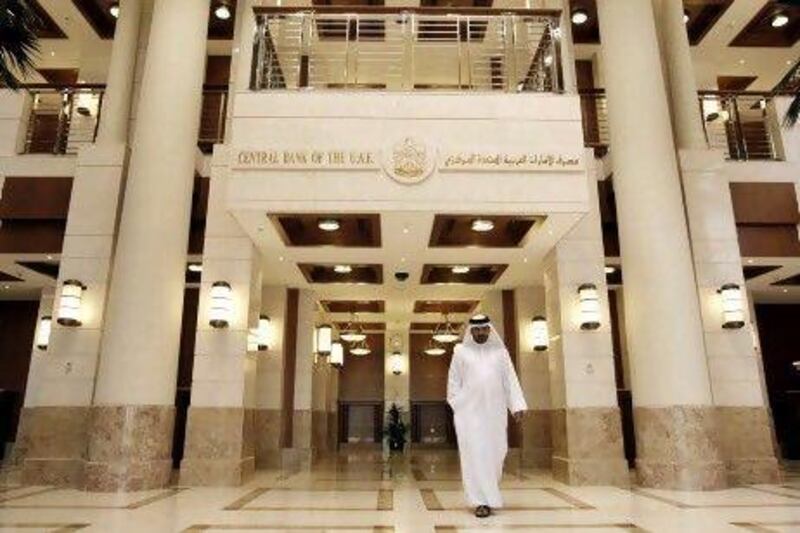The Central Bank has met lenders to consult for the first time on how it regulates the retail banking system.
All of the major banks were invited to the first meeting of the Retail Banking Committee on Wednesday to discuss the regulator's new rules on mortgage lending, according to sources at local and international banks who asked not to be identified.
Top bankers said they hoped the meetings would become a regular feature of the Central Bank's oversight. The meeting follows aggressive interventions by the Central Bank in the past six months that have led to new rules on personal loans, bank provisioning, mortgage lending and telemarketing.
But an outcry by banks over the lack of clarity and speed of implementation of the Central Bank's recent circular on retail lending led to its delay by a month.
The secretary of the Emirates Banks Association, the industry representative body, was also at the meeting. The organisation had served as an intermediary in negotiations over the retail banking circular.
Suvo Sarkar, the general manager of consumer and elite banking at the National Bank of Abu Dhabi, said frequent, formal engagement with the regulator was a positive development.
"That's the way forward, where there's a much closer level of engagement [with] the Central Bank," Mr Sarkar said. "We're definitely seeing far higher levels of engagement and I think that'll continue.
"Our intent is to make that a regular occurrence. The whole industry can benefit much more with a collaborative approach between the banks. It's not just about helping the banks talk to the Central Bank, it's making them talk to each other."
Mr Sarkar stopped short of giving any information on details of the meeting or what topics had been covered.
But analysts said regular dialogue between banks and the regulator was a significant step forward for the sector.
A consultative approach would give the public more notice of changes made by the Central Bank, said Raj Madha, a financial analyst at Rasmala Investment Bank.
"The basic principle is that businesses need to be able to plan to be efficient," Mr Madha said. "If there's a significant legislative uncertainty then it's difficult for them to plan."
The idea of a formal consultative relationship so that regulations could be actively studied is unusual in the Middle East, he added.
"There's always an assumption that there's a private discussion at a very high level but the reality is that to understand the effect of a piece of legislation, it isn't really adequate to go and ask the chairman of a bank," Mr Madha said.
"You need to set up a working group to ask people who work in the relevant division how it'll affect them."
Representatives from the Central Bank and the Emirates Banks Association could not be reached for comment.





